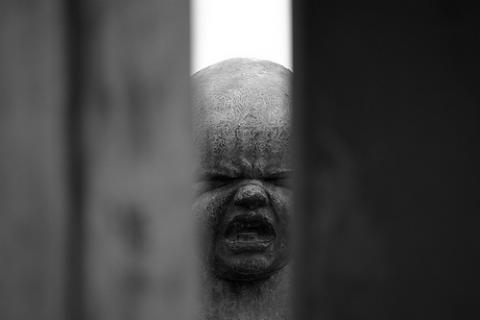Cry Me A River(dance): A Brief Note on Intimate Publics.

The Taoiseach's tears beg us to identify with him despite the politics of differentiation and exclusion his government represent. By Mairéad Enright.
Last Thursday, the Taoiseach, sending out our ambassadors as sheep among wolves, told them and us that he “actually cries” every time he sees the “powerful phenomenon of Riverdance. Ancient dance translated into a phenomenal and powerful message”. What might the Taoiseach’s unabashed national sentimentalism tell us about the emotional economy of crisis?
In The Female Complaint, Lauren Berlant unpacks ‘intimate publics’. Her focus is on the public sphere as a space of affective transactions. The public sphere is a place where “we” consume the stuff of shared life together. Though we are in our private lives strange to one another, stranger still in these times, “we” come (we are drawn magnetically) together in public by nothing more than the optimistic sense that we have a life in common; the desire to identify with one another. We gather in public to make emotional contact; to have our belonging together revealed, confirmed and recognised. We come to check what belonging to ‘us’ means today and to find out how that belonging is lived. We gather, in particular, to hear personal and sentimental testimony of life lived as ‘one of us’.
Terry Prone elaborates: The really annoying thing about the speech was that it said so much that we've been saying to each other. ... We've talked about how Riverdance grabs us by the emotional short and curlies. In the Taoiseach’s intimations of wet eyes glistening in the dark of corporate boxes, we are to find our sentimentalism valorised. But on Berlant’s reading, this sentimental union is far from benign. There is a cruelty to optimism about national togetherness. There are other things we could be crying for.
Two days before news of Enda’s tears broke we saw carers cry on television in grief as they shared intimate details of the hardships of life on the margins of the “we”. But the Taoiseach’s story of his easy tears distracts us, it roots us in desire to the spot. His anecdotes help the intimate public to absorb and overcome the contradictions of belonging in the “we” made obvious by carers’ narratives. They entreat us to identify with him in spite of the politics of apartness, differentiation, exclusion and hierarchy which he and his government represent. Make no mistake, the Taoiseach turns to the personal in a denial of the political; his patriotic tears dampen down dissensus. Can we not be political for a moment?
Image top: Alistair Knock.
